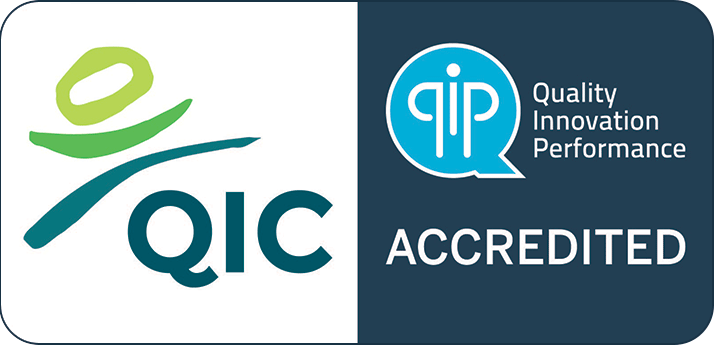As we move into the next phase of COVID-19, Centacare is preparing to transition staff back into the workplace. Many people may have worries as we re-establish a sense of normalcy, as well as anticipatory anxiety and concerns about what our home, work and social lives will look like. Deputy Director Pauline Connelly has shared her thoughts to support people to manage their emotions at this challenging time.
I want to share with you some common feelings experienced during this time, and some things I have learned about myself and read about, that may be helpful to you.
This experience of being isolated from extended family and friends, of having choices taken away, of working from home along with working differently, as well as numerous social activities curtailed, all cause a variety of reactions within us.
I want to reassure you that a lot of what we are experiencing is a normal response to an abnormal world occurrence. We are not developing anxiety disorders or mental health issues that will stay with us, and we are not experiencing this alone, as there is a commonality about what we are all going through. Having said that, we all experience this commonality differently as we are different people.
Many people, along with me, have expressed that they feel extra tired. We are living with heightened awareness. Did I wash my hands? Was I too close to that person? Should I be touching that surface? Is that person too close to me in the supermarket? Is it too soon to do what I normally would do with my friends, and if so, what can we do?
Having to think like this is very tiring and it is not a way we would ever have operated previously.
People are experiencing a range of emotions.
In the first stage of moving out of the office, there was for some, almost a honey moon period where all the pressure was off, and for others, heightened stress.
There was the initial adrenaline rush around the change, and people expressed how they worked in their pyjamas and there was a novelty to this. Others dressed for work each morning and quickly established boundaries at home, between work and home. (not easy sometimes).
Toilet paper was a most prized purchase, and not having to be anywhere or decide on what you wanted to do was almost freeing for some, whilst others felt trapped.
There was no traffic to worry about and most people felt a sense of safety being cocooned away in their homes, (if not a little bored).
Every day we watched the count and waited for the daily health report. There were endless discussions on social media about the cause, conspiracy theories abounding, while watching the horrors of what was happening to countries in Europe, UK and then America.
As this novelty began to wear off, the anxiety and tediousness of our day began to settle in, and many people reported that they felt quite flat some days, they were less tolerant of mundane things and felt often much more irritated with people or situations than they normally would have.
Once again, this is a normal response to an extreme once in a hundred year pandemic.
I heard a person from NASA speaking of the different stages the astronauts go through with their long term isolation in space, and they named it as the four quarters, and suggested that we may be now in the third quarter.
In the third quarter, astronauts go through tiredness, irritability, loss of patience, feelings of flatness and a lowering of morale, and thousands of people have described this during the time of isolation required with COVID-19.
Another phenomenon though in this third quarter, is that of knowing the end is in sight, and this for us is coupled with the number of zero days.
This can bring about a feeling of impatience, wanting it to be over right now. Like any adversity, when we can see the finish line in sight, it becomes a little more unbearable, and we can feel agitated about not being able to watch a footy match, sit in a restaurant, or go to our favourite venues for that much wanted social time.
Astronauts found that looking at the big picture and the reason they were on their mission, assisted them to deal with the range of emotions they felt, but the third quarter was a time of extreme experiences emotionally.
I want to suggest to you all, that once you start returning to work, you may also go through a range of emotions.
Many of you would have adjusted to working from home, and the new routine has become a familiar one. You could feel quite bothered about having to uproot again, and change the way you work while needing to establish something that once again feels normal.
This too is a normal part of how humans experience and adjust to dislocation, along with managing the threat they have felt to the risks of the virus.
Some of you will experience a level of anxiety around returning to work that you would never have experienced three months ago. We have to measure the actual risk (zero cases in SA), with our sense of the perceived threat, when we notice we feel anxious about being at our desks again, mindful of all the safety procedures Centacare has in place.
So it will be another adjustment to a workplace and a world that will remain very different in terms of long term safety procedures required. It will also remain different in our psyche as we continue with the adjustment to the fact that some things may never return to how they once were.
So when you return to work, don’t be concerned if you struggle for a while emotionally during this phase, and remember, human beings adjust. It will just require patience and inner strength.
Spend some time observing your emotions, be a bit curious about them, talk to your colleagues, manager or friends, and I suggest you approach this feeling of discomfort without judgment of yourself or without concern that you will be stuck with these feelings.
I wish you all well, in whatever work you are doing and returning to, in the knowledge that you have always put the client first, and shown great kindness and courage in this, and I thank you for this.
Right now some of you will be feeling vulnerable, and I want you to know we are here for you, we care, and one day I am sure, some of you will be using what you learned in training, writing a paper on it or presenting at a conference about all we have learned as an organisation.







